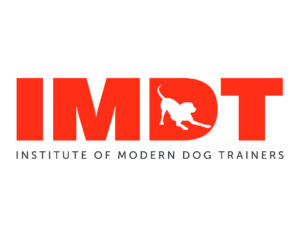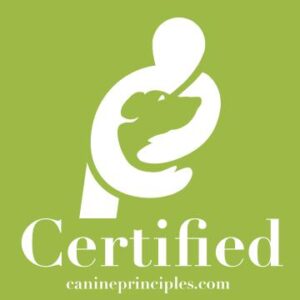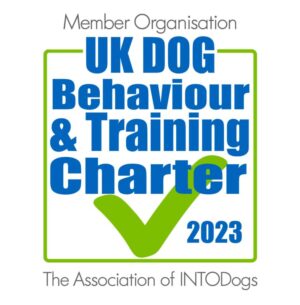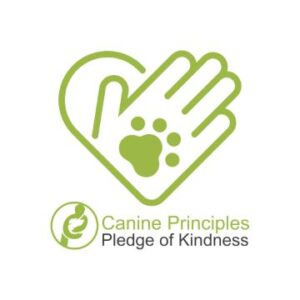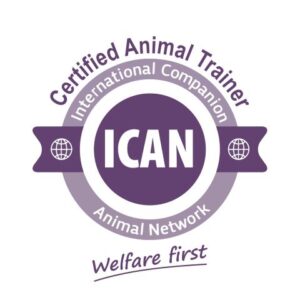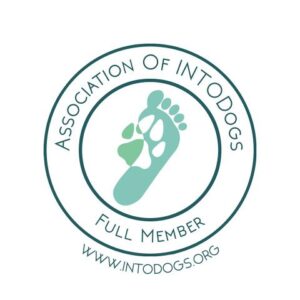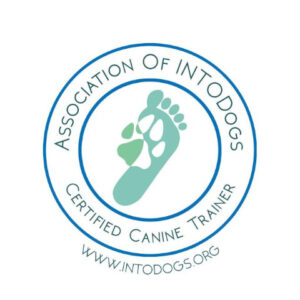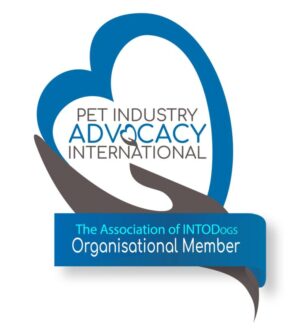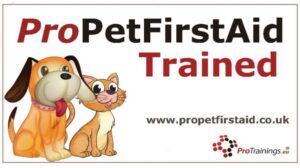My dog is reactive. This is a sentence that training and behaviour coaches hear a LOT. But what does it mean? How do you know if your dog is reactive? We use a lot of jargon in dog training and behaviour, and the term is a bit of an unwanted 'label' that doesn't do the individual dog justice.
Opinion on what reactivity is changes from person to person. For some, the term conjures up the stereotypical image of the large, bull breed straining and lunging on a choke chain. For others, the image will be of the small 'yappy' dog that barks at all the big dogs. ALL of these dogs are reactive - in fact, every SINGLE dog is reactive when it comes down to it - they all react to something! We ALL do.
We know that the majority of canine reactivity stems from pain, fear or frustration - and most of it as a result of some sort of barrier. That barrier may be the lead the dog is tethered to, which stops him from running away from a perceived threat or it could be the window that stands between him and a dog walking past his home.
This blog article covers lead reactivity. While it is extremely common, it is a complex problem that is only aided by OUR observations and the preventative and proactive action we can take to help our dogs in situations they find scary.
Imagine you are a 10 week old puppy and your little brain is still developing - you are still learning what makes you happy and what scares you. You are walking happily next to your new guardian on a narrow canal towpath when, round a blind corner, appear a group of people on bicycles, making lots of swooshing noises and ringing bells. You get such a fright, you yelp and try to flee, but you can't go anywhere because you are tethered. While your guardian knows this tether is for your own safety, you certainly do not. While your guardian tries to soothe you on this occasion, they continue to take you along the same narrow path, where you regularly bump into bicycles and the situation replays and replays - you have no way out. Your fear grows just a little each time and you begin to lose trust in your guardian as they continue to take you to the same places.
Soon, you are stressed about your walk before you even leave the house. You KNOW there are scary things out there and there's nothing you can do about it, because you are on that tether. So your reactions become more extreme -- by now, you've realised that if you bark and lunge long enough, the scary thing will go away again. This is known as negative reinforcement - it works, so you do it again and get bigger and louder every time. By now, your guardian is embarrassed, frustrated and ashamed. Lead 'corrections' make you feel even worse because you feel that tension round your neck or body, depending if the lead is attached via collar or harness. This deepens your fear, because it is paired with pain or discomfort. Your muscles and bones ache. You just want it to stop.
It's easy to see how reactivity gets worse. Dogs don't have the power of logical thought the way we do. When we continue to put them in challenging situations, their behaviour will not eventually right itself - it will only get worse.
Helping a dog through reactivity covers a LOT of different variables. We need to be our dog's eyes and ears. I will normally ask clients to keep a diary of their dog's reactions because it helps me to build a picture. Narrow paths, blind corners and anything that blocks a clear view for the dog tend to add to their stress. Certain dogs can evoke stronger reactions. If the dog has had a 'run-in' with a certain breed of dog, they are more likely to be worried about that particular breed. Or colours - black dogs get a hard time because other dogs can't read their body language. Flat-faced breeds can be very misunderstood - they snuffle, their body language and play style can come across as confrontational (think of the French Bulldog crabbing - it can confuse!). Collies - bred to have a hard stare, in a world where a hard stare means 'come fight me'.
It's not only other dogs that cause reactivity though. More importantly, we need to be aware of what WE do. Think about the process you go through with your dog - are you on edge before you leave, as you dread bumping into anyone? Do you grab hold of that lead so tightly, the dog is practically stuck to your side? Do you shout at the dog in frustration - or do you shout at other owners in frustration to get their dogs on lead? Do you try to drag your dog in the other direction?
Also think of the 'tether'. Does your dog like getting his harness or collar and lead on? Does he pull anyway? To be able to manage reactivity - in other words, to help let the dog feel more secure - we must understand how our lead handling affects our dog's behaviour. If there's constant tension from our end of the lead, that tension flows right through and adds to the dog's experience.
Dogs don't just get over 'reactivity', we must put the tools in place to help them feel more secure. It can take a dog 72 hours to recover from an 'incident' - for the body to stop producing cortisol and calm from the fight/flight response. If exposed to triggers daily, their body doesn't have the opportunity to recover at all - this can leave them in a constant state of generalised anxiety, which is not always obvious unless you know how to identify it.
That means STOP taking them to the places they react the most. Go to wide open spaces, where you can control the environment for your dog - or a good, secure private play area/field. Be their eyes and ears - take appropriate preventative action when you see a potential trigger. If you can't take appropriate action, and a dog appears before you can do anything - stay as calm as possible and comfort your dog. Shouting at other owners is adding to your dog's fear and just leaves you frustrated and frazzled.
The most important things you can do to help your dog through reactivity, is to understand the emotions that drive the behaviour. Reactivity is NOT 'naughtiness', it's a cry for help and we owe it to them to listen. Training is not enough for reactivity - physical, manageable changes in routine are vital. To help the dog, we need to cement our relationship with them.
I would urge anyone with a reactive dog to pick up a copy of Janet Finlay's Your End of the Lead. A fantastic book full of lots of common sense advice that helps you build up your own resilience and management techniques that will help you to help your dog.
If you have a reactive dog, I'd love to help. My name is June Eaglesham and I'm the owner and founder of Wee Molly's Pals Pet Services, based in the little village of Winchburgh, just west of Edinburgh.
Pre-puppy consultations are something that I promote and believe in wholeheartedly . I have good reason for that - being prepared means you are in a MUCH better position to proactively manage normal puppy issues that you encounter along the way before they become 'unwanted' behaviour. To get the most out of them, consultations should be sought WAY BEFORE you put your deposit down - they should happen before you've even decided which breeder or breed of dog! Invest in your potential new arrival from day one, they are part of your family - take the support that's out there, it does pay off! Good trainers offer pre-puppy consultations because we know just how important that preparation is for the long-term benefit and wellbeing of both dog and guardian.
When you are deciding to take on a puppy, there are so many factors to think about. Family dynamics, home environment, activity levels and the amount of time you can give to a new puppy, as well as the long-term commitment - it all needs to be taken into account. Puppies, just like babies, need a stable environment with a regular routine, in which to blossom - is that something you can offer? Can you provide them with appropriate and suitable socialisation? Do you have room for a larger breed? Do you have the energy to cope with a high drive dog? Do you have enough commitment or knowledge to take on a working dog, like a Collie or a Spaniel? Do you have enough time to allow puppy to get used to being alone before you go back to work? If you're considering a brachycephalic (flat-faced) breed like a French Bulldog or a Pug, have you researched their very particular health problems and know what to look for in a healthy pup? Can you afford to insure your dog and if not, can you pay vet bills? If you can't say yes to ALL of these, then some more research is required before you take on that level of responsibility.
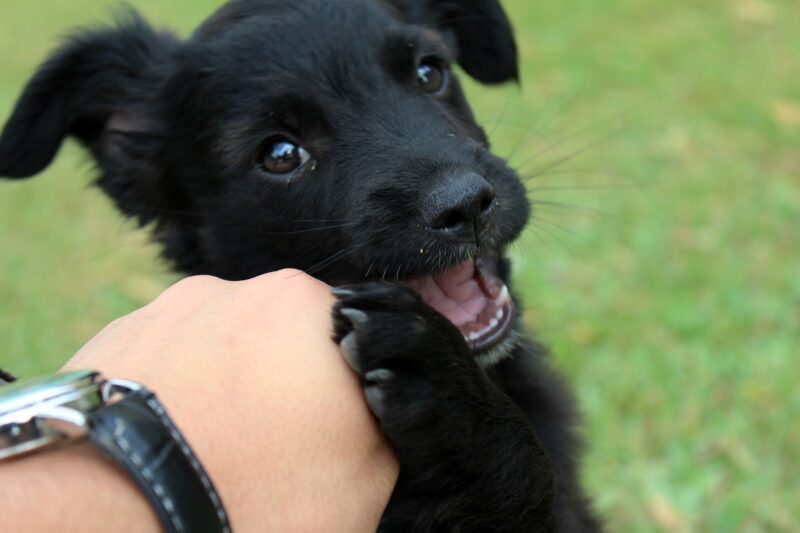
Can you honestly say that you will put the effort in every single day to train and interact with puppy from day one? Training doesn't stop when the puppy grows up - it's a constant and is a vital part of creating a positive relationship between dog and guardian. Creating and managing boundaries takes sleepless nights, eternal patience, hard work and a LOT of commitment. Puppy classes don't magically train puppies - they provide the foundations for you and your family to work on. Training fails when we don't keep that momentum up - the relationship between dog and guardian can ultimately break down and in some cases, become irreparable. Proper preparation with a good, professional trainer, can set you and pup up to avoid these issues, or at least make you aware of them and in a better potision to deal with them as they arise.
Do you have young children in the house or children who visit? If so, you also need to think about the child/puppy relationship - it's not all about the cuteness and the child having a companion as they grow. Puppies are not cuddly toys. Is your child able to understand that puppy needs to be left alone to rest and will they comply with that? Will they be able to make sure puppy feels safe and not crowded? One of the potential pitfalls of having a puppy is not appreciating just how much of a land shark they are - just like babies, they teethe for a LONG time. Just like babies, they need to try and chew on something to ease that pain. They also have an innate need to chew, whether teething or not. If puppy gets too overexcited with young children OR adults who like to roughhouse, the teeth come into play and the puppy gets told off - or even worse, we smack them on the nose, which can cause behavioural issues and a fear of human contact down the line - something we DEFINITELY want to avoid. Puppies and children can be a wonderful match - but boundaries and supervision need to be in place from the start, as well as a basic understanding of canine body language and stress signals, to avoid potential flashpoints. I like to send new guardians an infographic of the canine ladder of aggression - a simple visual to help parents and children work together to try and help puppies live in the 'green zone' as much as possible.
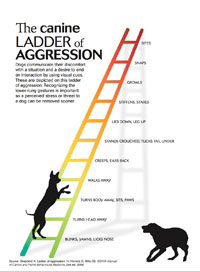
Puppies don't come to us as a blank canvas - environmental and genetic factors have been at play since the moment of conception. Their early experiences, just like humans, shape their lives and understanding of the world. If mum was stressed or nervous, there's a higher chance puppy will be stressed or nervous. If mum is confident and well socialised, puppy is more likely to be confident in new situations - it's a fact of life (and science). If pup's time in the whelping box with mum and littermates was in a loving and calm family home with all the normal household sounds, they are likely to be more confident and resilient than a puppy brought up in a dark shed with no access to natural light, sounds or human touch.
From the moment puppy arrives, new guardians should be setting the boundaries to help the puppy understand the house rules and what we want from him. Set the puppy up to succeed from the very beginning and life will be MUCH easier. For instance - the eternal issue of puppy jumping up, cute at first, then REALLY annoying, and potentially dangerous as puppy grows. If guardians knew from the outset that all those 2-legs-off-the-floor cuddles create the reinforcement history that CAUSES the puppy to jump, they can have a strategy in place to avoid it. Reinforcement isn't just about food rewards - puppies crave comfort and attention and when we give them that, they'll seek the same thing again. When we then reprimand them as they grow up for doing the same thing, it's no wonder it becomes such a flashpoint!
The first night for a puppy is CRUCIAL. Socialisation classes can't give you advice for that - they come far too late. If the first night has been a disaster and puppy has been left to cry in a locked room on his own, the relationship between pup and guardian has already been damaged. Think about that first night from the puppy's point of view - a new family, new sounds and smells. None of the comfort or interaction from mum or littermates. This new world can be a very scary place - with good preparation, we can make that transition much easier for them (and, in turn, ourselves).
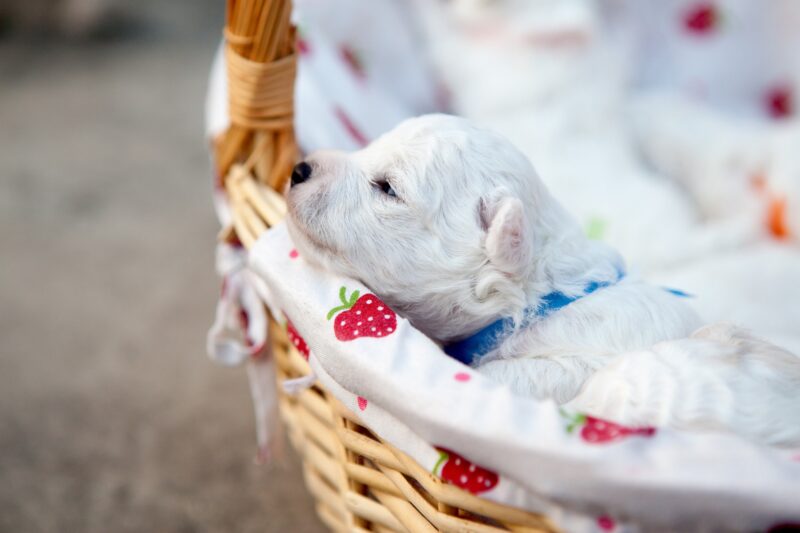
As a trainer, a large percentage of my enquiries are for socialisation classes or puppy classes. But the bit before that is also critical, if not more so. Puppies go through a couple of fear periods in their lives, including one that kicks in at around 8-10 weeks of age. If the transition from mum to new family isn't handled well, that can cause long term effects, including the potential for separation anxiety.
Trainers want you to know that socialisation does NOT begin in socialisation class. The term 'socialisation' at this stage of a puppy's life means 'exposure to'. During their critical 'socialisation period' (up to around 16 weeks) it is crucial that we expose puppies to new situations, sensory experiences, animals, humans and other dogs in a controlled and safe way and at a pace they can cope with. To bring a puppy home at 8 weeks, but then to keep at home until 2 vaccinations are done - sometimes a month later - means a large part of that socialisation opportunity has been missed. Puppy slings and buggies were invented for good reason!
I love a pre-puppy consultation, because it shows me how committed people are to getting things right. Remember, your pup may still be a pup at almost 2 years of age, depending on size and breed. Make sure you start off on the right paw!
My name is June Eaglesham, I am qualified and certified by IMDT, INTODogs, ICAN, Canine Principles and Pet Industry Advocacy International. I’m also a proud member of the UK Dog Behaviour and Training Charter. I am also a student with Animal Centred Education, qualified to Module 2 level, as well as being a student with HeartDog Trainers. I am the founder of Wee Molly's Pals Pet Services, based in the village of Winchburgh, just west of Edinburgh.
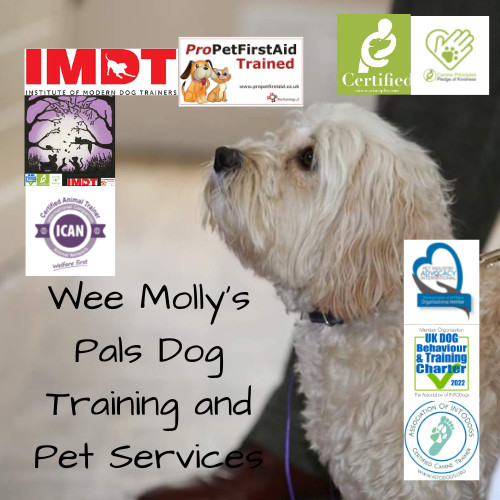
My name is June Eaglesham and I am the Owner of Wee Molly's Pals Pet Services, situated in the small village of Winchburgh, just west of Edinburgh. I am a canine coach and trainer, with my main focus being on improving the relationship between dog and handler. I'm also a budding blogger and writer, with a special interest in human and canine communication and emotional wellbeing. Welcome to my first blog!
Wee Molly's Pals, named after my own best Pal (pictured below) began life in 2016 as a dogwalking, boarding and petsitting business, but it was much more than just those words - it was a feeling, a passion and a way of life. It has taken me until Lockdown 2020 to be able to fully understand and articulate the ethos and vision for my precious little business.

I use the term Lockdown 2020 as though it was some sort of festival but I am certainly not making light of it. It has been a period of fear, pain and uncertainty for so many of us. For me, it has been a period of rediscovery, clarity and SO much more.
Prior to Lockdown, things appeared to be going well for Wee Molly's Pals. From the outside looking in, that was probably a fair assumption. Even though I 'never stopped', I wasn't getting much in the way of training work and my confidence had taken a battering - procrastination had become a way of life. I had taken on a colleague to help with walks, but I was still running around like a headless chicken with absolutely no focus or route out of the chaos that was going on in my brain. I knew where I eventually wanted to be, but had lost sight of how to get there.
I continually compared myself to other, more established trainers and the imposter syndrome soon became very real. As someone who has battled anxiety and depression for most of my adult life, maybe I should have recognised those negative feelings creeping back in? Truth was, I was already too far down the path to slow down and take stock. I was actually dangerously close to breakdown (a place I certainly never had any intention to return to). I was also radiating that lack of confidence, and that came across in my dealings with clients and posts on social media - of course I wasn't drawing people in! I felt like a jack of all trades, but a master of none - years of studying, attending courses, webinars, workshops, but I hadn't found my niche, hadn't worked out my specialism - what makes me stand out? Why would people choose to be my clients? I didn't see myself as a 'regular' dog trainer, but the traditional route towards becoming a behaviourist wasn't sitting right with me either. What was I?
As Lockdown was announced, and the reality of the situation kicked in, I knew I had to act. If Wee Molly's Pals was to survive the economic downturn and continue to grow and improve, then I needed to kick myself into touch. I had to deal with these deeply ingrained fears and negative thought processes and finally put them to bed. I needed to find a positive way through and realised that I had to start with myself.
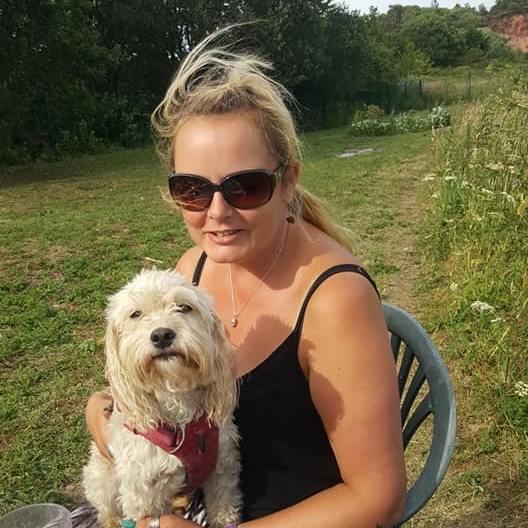
I decided to unpick myself from the inside out, work out my strengths and weaknesses, my motivators and fears. How could I do that effectively? Write it down. Until I dropped out of school, I had wanted to be a journalist and writing about my experiences has reminded me why - I have always had an innate need to investigate and research a subject until I know it well, and I LOVE to analyse. As an adult, I have always wanted to write about my personal issues to help others - this was ticking so many boxes, that it might finally work and I could be free of the negativity that has held me back!
So, I began writing a book of memoirs, as well as a 'blog' on Facebook. The 'blog' is an area I use to work on the thoughts that pop up while working through some of my emotional traumas (as well as the politics and injustices of Lockdown 2020) and how I relate them to the 'here and now'. Here isn't the place to talk about that - however, if you'd like to follow progress, here's the link - https://www.facebook.com/thisbeautifulmesscalledlife. I started the project with a sense of urgency and the intention of self-publishing down the line. Now, publishing isn't my main priority. How I move forward with the business I HAVE, very much IS.
Engaging with my memories has reopened my love of language and words, as well as giving me a better understanding of why I react to things in a certain way, but also where my skills lie. I began to wonder how I could apply these things to my business, but also to the dogs themselves to encapsulate everything that Wee Molly's Pals stands for.

Before I entered the world of dogs, I worked in the frontline of social housing for over 23 years. Starting in Ayrshire, finishing in Edinburgh, my career spanned many legal and societal changes over that time. I was 16 when I was thrown into the fire as one of the last trainees on the Youth Training Schemes of the early 90s.
This taught me the need to be an excellent communicator at many different levels, from preparing legal cases and the formal language that entails, to dealing with a plethora of varying issues in the housing schemes.
A huge part of my role was conflict management - mainly during neighbour disputes, although I was once awarded a Merit Certificate by Police Scotland for my role in a large-scale anti-social behaviour operation which saw me mediating between the perpetrators and the police themselves. A lot of work on the estates surrounded multi-agency engagement, usually dealing with integration and inclusion. There was a responsibility on me to pitch that appropriately to gain trust in some communities, depending on the issue at hand. I had to be a good negotiator and mediator, but most of all, I had to understand and empathise with each individual and use my observational skills and intuition to get to the heart of a story.
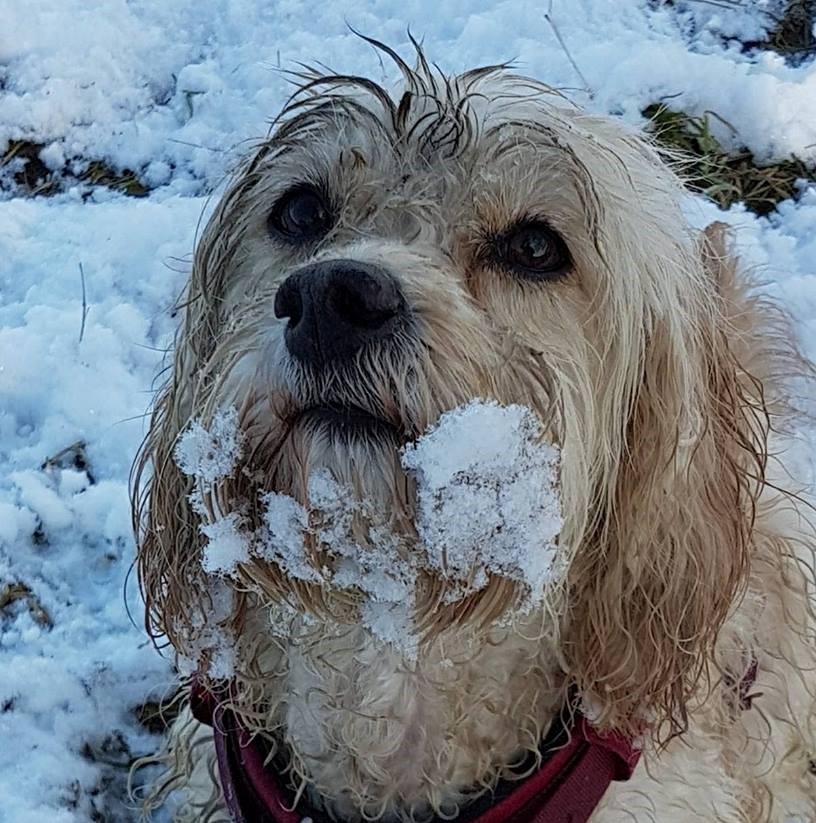
Problem solving skills are essential in that line of work. Snap judgments or the incorrect use of words in a difficult situation could be a potential disaster - so many of my clients lived on a knife-edge. Some as a result of abuse and addiction, some through domestic violence, prison release, war and pretty much any other horror you can think of. Mental ill health is rife in our deprived areas and poverty is only a single factor.
When things went 'wrong', it wasn't unusual to receive death threats, physical assault and verbal abuse - all part of the job when someone sees YOU as 'The System' and has an axe to grind (usually with a point - 'The System' sucks, but that's a whole other subject). But even when people were showing me their worst side, I had to see through that to understand where they were coming from. I wanted to empower people, not be their enforcer - the difference between a good housing officer and one that's part of 'The System'.
The realisation that I was already using ALL of these vital skills with the dogs that I work with was a bit of a revelation (and also a facepalm moment). I love watching 'conversations' between dogs and my passion is teaching that skill to other people, but I have found it quite a challenge to articulate that in an easy-to-follow package. They 'speak' to us all the time and 2-way communication is made much easier once we know their little signals (that 'yawn' might not mean your dog is tired, just as wagging his tail doesn't automatically mean he's happy) and can acknowledge them or keep them safe.
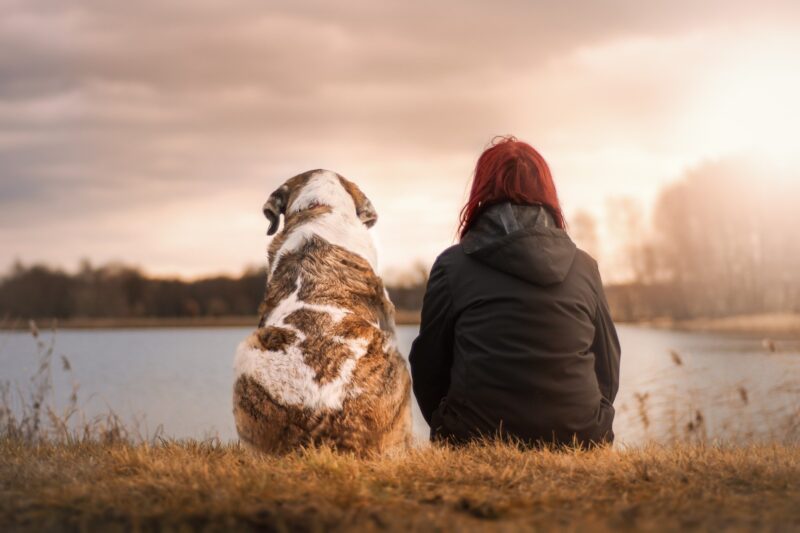
Understanding what canine body language looks like isn't enough, in my opinion. The emotions that drive the signals also need to be explored, as well as the need to see them as the sentient, decision-making creatures they are. How do we effectively teach this to our clients without feeding into the anthropomorphism (attribution of human characteristics to animals) debate? How do I get that across to clients easily and without stepping over the boundaries of canine science? THAT is my motivator - it always has been, I just hadn't pinpointed it!
Now I've found my motivation, how do I put it into action? Over the past few months, I have been collecting videos of dogs in all types of situations, to use for a workshop which I wanted to call 'Silent Conversations'. But I still couldn't quite work out a way of presenting it that was different to any other body language course I had completed, without verging on anthropomorphism.
I do work on the 'equal' relationship with clients and purposefully won't use certain words during training classes as I don't like the connotations attached to them - 'command' is an example. I want to attract the type of client who wants to have a respectful and fun relationship with their dog, while setting appropriate boundaries to keep themselves and others safe. Someone who sees the dog as a sentient individual, with thoughts, emotions and problem solving skills. I don't teach a 'heel' because I personally don't think it's vital - teaching 'loose lead' is my preference. I teach 'life skills', not 'obedience', because that's not the service I offer. I like to work on a lot of calming behaviours in class, because I like to promote the calm in the human/dog relationship - there are many other types of classes available for activity led training, that's just not where my passion lies.
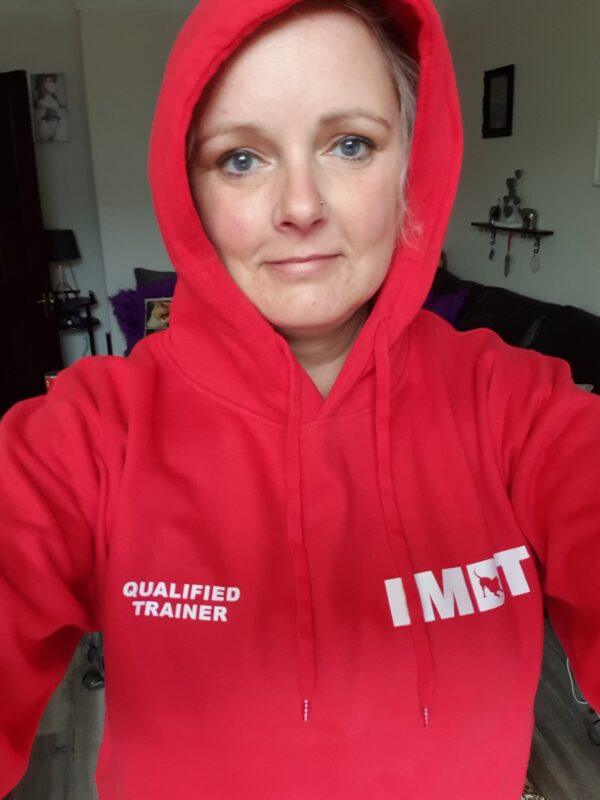
#bethechange
I've started work on a course which I hope will be available on the website soon. It's a lovely little mindfulness course - the chance to really see your dog on their level. I also have some exciting ideas about how I can bridge that gap to help humans understand their dogs just a bit better.
With my renewed passion for words and language and a good bit of self-understanding, I am now in the process of a makeover in terms of encapsulating all that Wee Molly's Pals Pet Services is. I want to teach you canine wellness and how to help prevent your dog suffering from mental ill health. I want your dog to be emotionally resilient as well as having life skills in place. THAT is me. THAT is my business.
Thank you for reading! If you have enjoyed this, please do like/comment/share and feel free to give my business page a wee follow on Facebook. You'll also find below a link to MOOD Scio, a West Lothian based mental health support project, of which I am a proud Board Member. Please feel free to check them out.
https://www.facebook.com/Weemollyspalspetservices
